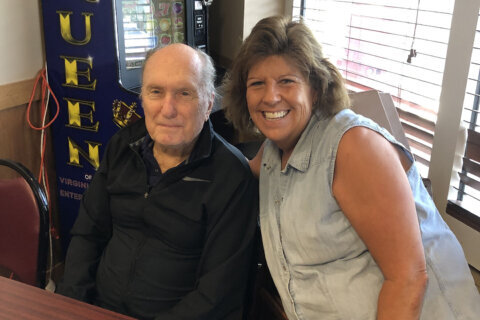LEESBURG, Va. — In an effort to cut down on serious confrontations between law enforcement and those facing mental health issues, and to increase access to mental health services in Loudoun County, Virginia, a new crisis intervention team assessment center has been announced to help those with mental health emergencies.
The center also will help sheriff’s deputies spend more time on patrol, and less time sitting with patients awaiting an evaluation.
The Loudoun County Department of Mental Health, Substance Abuse and Developmental Services, led by Division Director Michelle Petruzello and Department Director Joe Wilson, has been working with Sheriff Mike Chapman to set up the new assessment center. It will be funded for two years by a grant, with hopes that it will show the successes needed to earn more funding from other sources in the future.
“We have deputies that are trained to work with people experiencing psychiatric emergency and who can identify there might be a need for an assessment, and this would be a place where they could bring that individual to work with our staff and ensure that we get an assessment and get them the help they need right away,” Wilson says.
When it opens this fall, family and friends, or even individuals who need help themselves, can call 911 to request a crisis-intervention-trained officer or go into the center for help between 7 a.m. and 11 p.m. Right now, Petruzello says the only option outside of business hours is often the emergency room.
“The goal is not just to look at the crisis right now, but to also look at ‘OK, what’s going to be different tomorrow? What’s going to be different the next time this same exact trigger or event happens, how can we help stabilize, give support, give resources, knowledge, skills?,’” she says.
“I wouldn’t think emergency services would ever look at just today, they look at ‘how can I impact the person moving forward?’ as well.”
The Sheriff’s Office has trained about 100 deputies over the last four years in crisis intervention techniques meant to help de-escalate situations and to help deputies understand what people with mental illness may be going through.
Chapman’s wife is a facilitator for the National Alliance on Mental Illness, known as NAMI.
“People suffering a crisis can be evaluated, and our deputies will be able to drop them off there and have them evaluated so they can go back into service,” Chapman says of the benefits of the new center.
“We estimate that we’ve spent probably close to 8,000 hours of deputy field time on mental health evaluations and committals, and this will reduce that number significantly and allow our deputies to get right back out into the field and continue to serve the public.”
Chapman says, if re-elected in November, he would like to have all deputies trained over the next four years. He is running against Democrat Brian Allman and former Sheriff Steve Simpson, who’s running as an independent.
He says several situations have been resolved in much better ways thanks to the training.
“We’ve had deputies that have gotten to know families of people that are suffering from mental health issues, and are called specifically to go to those to de-escalate the situations and try to get people back on track. It gives our deputies an ability to empathize with the people that they’re dealing with and it just gives them an overall better concept of what’s going on with that community.”
“We’ve had several situations that could have ended disastrously that did not, because the deputies took the time to communicate. It really is a communication enhancement skill set,” Chapman says.
Deputies are trained in a 40-hour class over the course of a week.
Jeanne Comeau, executive director of NAMI Northern Virginia, says other jurisdictions in Northern Virginia that have opened similar centers and stepped up the crisis intervention training have helped more people with mental illness get treatment without getting stuck behind bars.
“We’re very excited about the new assessment center because we know that so many individuals who live with mental health conditions are not able to get the treatment that they need and often end up in the jail instead, so just having a place that officers are able to go and take people who live with mental illness to a place where they can be safe and also are able to access community resources,” she says.
Comeau said she believes there has been increased community awareness in recent years, and increased recognition that people with mental illness need specialized care, especially in the wake of the shooting of John Geer in Springfield, Virginia, the death of Natasha McKenna in the Fairfax County jail and the incident involving Sen. Creigh Deeds and his son. Deeds was attacked by his son Gus who then killed himself.
“When people have heart conditions and they have a heart attack, the first thing we do is get them in an ambulance and get them to the hospital and get treatment, and mental illness is another chronic condition where we need to provide treatment,” she says.
Wilson, with the mental health department, says if an assessment center had been available when Deeds called for help for his son, help might have been more easily available.
“I was just talking to Sen. Deeds … about other issues in Loudoun, this relates to that very situation in terms of providing a place where individuals can come who need service, and it’s actually a place for all concerned community members to engage the process, so it does help us to better coordination … and does help us to advance the idea that community mental health is everybody’s responsibility,” Wilson says.
Crisis assessments can lead to simply providing a person with information about community resources, a temporary detention order, hospitalization or other outcomes.







